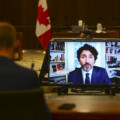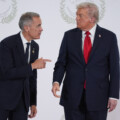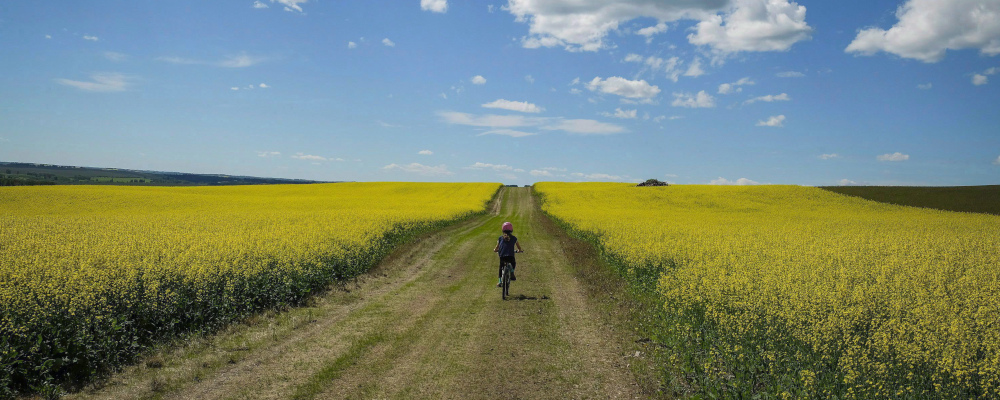How do we pull ourselves out of the doldrums of decadence?
That question is fundamental to The Hub’s mission and purpose. We launched this new media platform just over a month ago committed to a proposition that Canada’s economy, society and politics had become too complacent and slumberous.
Modern Canada has come to cast its energy and attention on the here and now and, as such, we have lost our ability for collective aspiration. We’ve in effect traded off the adventurous possibilities of the future for the conspicuous consumption of the present.
It has turned out to be a bad trade. The result has been drift, repetition, sclerosis, and stagnation — what New York Times columnist Ross Douthat has diagnosed as “decadence.”
This lack of future orientation, as we observed in The Hub’s founding mission and statement, has various consequences. Not only does it contribute to pessimism and polarization in the present, but it also fails to reckon with our individual and collective capacities to shape the future. And, as Douthat and others have shown, decadence only gets stronger as modern societies retreat further from the future and withdraw into the false comfort of our smart phones.
The Hub’s goal is to be a platform against decadence and a voice for the future. Its primary aim is to revive a future orientation to our popular debates. We want to be a platform where people of goodwill and good faith can come together and debate different conceptions of Canada’s future. Our big bet is that such debates can be a catalyst for renewed ambition and aspiration.
The hope in this sense is to be a bit countercultural: we want to subtly yet purposefully push back against the economic, cultural, and political tendencies towards short-termism and a lack of collective aspiration.
In this vein, we are pleased to launch today a new essay series that we are calling The Next Frontier.
We are still a young, dynamic country with a frontier spirit.
The essay series starts with a recognition that while Canada may not have its own Turner thesis, our story is a frontier story. We settled the world’s second largest land mass, built a national rail system to connect us from coast-to-coast, landed at the beaches of Normandy, produced path-breaking inventions (including insulin, canola and the Canadarm), and are now pursuing a new frontier of pluralism and diversity in a multi-ethnic democracy. We are still a young, dynamic country with a frontier spirit.
A frontier narrative is key to Canada’s history and our own self-image. Think, for instance, of the “stalwart peasants in a sheep-skin coat” who arrived in the country in unprecedented numbers in the late nineteenth century and helped to settle Canada’s untamed western territories. These often obscure yet transformational contributions required people of aspiration and ambition who were committed to a frontier vision.
If Canadian history is a narrative of our collective pursuits of the next frontier, then decadence may be the outgrowth of a closing of the frontier. We have mapped most corners of our country and the globe. We have fulfilled the Biblical call to “fill the earth and subdue it.” The question is: what comes next? The answer that emanates from our current state of decadence is: “not much.”
Over the coming weeks, The Hub will be publishing essays by leading Canadian thinkers and writers that aim to provide better answers to the modern frontier question. In particular, the different essays will grapple with the different issues, ideas and technologies that will shape Canada’s future over the next 30 years.
Our contributors will have full discretion to put forward which issue, idea or technology will be the most consequential for Canada in 2050. It might be demographic change, the rise of China, the prospect of new currencies and financial systems, the effects of climate change, progress on Indigenous reconciliation, or something altogether different. The onus will be on the contributors to make the case for why their vision of the future represents Canada’s next frontier.
Readers can anticipate two or three essays from this series each week through the spring and summer. Their cumulative foresight and wisdom will help to push ourselves and the broader national conversation away from the day-to-day of politics to a different and better future for Canada.
The Hub’s founding essay argued that, as a society, we need to get back to the future. The Next Frontier essay series can help to lay out a roadmap to get us there.
Recommended for You

Scandalous politicians could finally face serious consequences if this Supreme Court case is won, says democracy watchdog

Don’t downplay the costs of the AI revolution: The Weekly Wrap

‘It’s in the Liberals’ interest’: The Roundtable on whether Trump’s antics will trigger an early election

‘Immense horror’: Iranian regime marks 47 years of Islamic rule amidst mass killings of protestors




Comments (0)